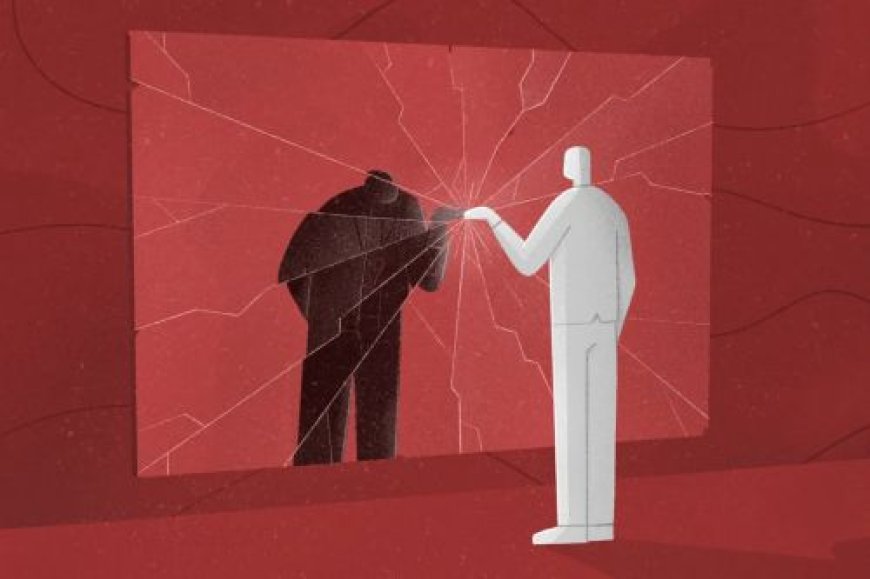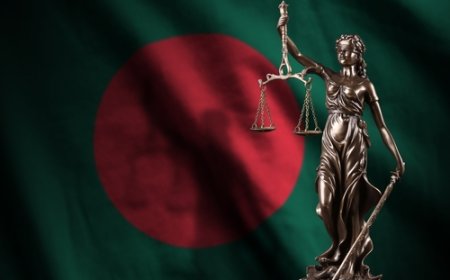The Crisis of Liberal Politics in Bangladesh
Bangladesh’s politics stands today at a critical crossroads. If a new political force grounded in liberal values does not emerge, the state will inevitably drift further into extremism, fanaticism, and division.

Bangladesh is currently undergoing a deep political crisis, one of its central features being the crisis of liberal politics.
Following the fall of the long-ruling Awami League in 2024, a new political reality has emerged. While this shift has brought a glimmer of hope in terms of democracy and accountability, it has also created significant political vacuums and widespread disillusionment.
In this context, it is imperative to critically examine the nature, history, crisis, and future prospects of liberal politics.
Liberal politics is a philosophy rooted in individual freedom, freedom of expression, human rights, secularism, the rule of law, and democracy. Its goal is to build a society where citizens can live safely and with dignity, enjoying their fundamental rights. Women's rights, the rights of religious minorities, tolerance towards dissent, and state accountability are all essential pillars of liberal politics.
The roots of liberal politics in Bangladesh can be traced back to the autonomy movements of the 1950s and 60s, and more prominently in the 1971 Liberation War and independence struggle. The 1971 war was driven by a vision for a secular and humane state.
Despite limitations, the 1972 Constitution reflected aspirations for secularism, socialism, and democracy -- forming a foundation for liberal politics. However, the path began to diverge under the Awami League’s post-independence governance, and with the political shifts starting in 1975 and eventual advent of military rule, the crisis of liberalism deepened.
Even after the restoration of democracy from military hands, liberalism remained more a slogan than a practice, with its presence in political culture growing weaker.
Although the Awami League historically claimed to represent liberal politics, its actual governance often prioritized power consolidation and repression. During its prolonged rule since 2009, the party faced accusations of corruption, nepotism, politicization of the administration, and suppression of free speech -- all of which are in stark conflict with liberal values.
Similarly, the BNP, while presenting itself as a centrist party, failed to uphold liberal ideals due to its own history of misgovernance, corruption, alliance with Jamaat-e-Islami, and lack of political tolerance.
As a result, there is currently no major political party in Bangladesh that effectively represents liberal values.
At the same time, despite the historically significant role of the left in Bangladesh’s political development, the current leftist landscape is fragmented, weak, and plagued by an identity crisis, further aggravating the liberal crisis. In the pre-independence era, the left played a vital role in movements for autonomy, labor and peasant rights, and anti-exploitation struggles -- providing a strong moral and political foundation.
However, post-independence, internal ideological divisions, leadership gaps, impractical political strategies, and detachment from people’s everyday realities rendered the left increasingly irrelevant.
As a result, leftist parties have failed to unite as a progressive political force and have instead been caught up in infighting and ideological puritanism.
This has weakened a crucial component of liberal politics and obstructed the formation of a united liberal-progressive front. The collapse of the left is not just their own defeat, but a blow to the ideological foundation of liberalism itself, further undermining the prospects for democratic transition in Bangladesh.
The deepening crisis of liberal politics following the fall of the Awami League in 2024 was, in some ways, inevitable. When people observe that those who preach liberal values neglect public interest once in power, they naturally seek alternatives. In this search for alternatives, segments of society are now gravitating toward Islamist parties -- despite their inherent illiberalism.
Parties like Jamaat-e-Islami, whose ideology remains regressive, outdated, and anti-women, are now drawing interest from some youths.
This is not a reflection of positive change but a manifestation of deep public disillusionment, political distrust, and the absence of a credible liberal alternative.
A particularly striking development is the recent Central Students Union elections in four universities, where the Islamist student organization Islami Chhatra Shibir achieved a series of sweeping victories. Long banned from campus and widely criticized for past violence and factionalism, Shibir’s win at a historically progressive institution like Dhaka University came as a shock to many.
Given its previous record at Chittagong and Rajshahi universities -- including repression, torture of rival students, and monopolistic politics -- Shibir's legitimacy has long been questioned. Its ambiguous, confusing, and a lack of a clear pro-1971 Liberation War stance has also been a major point of controversy.
Yet their victory this time is not merely a party success, but a harbinger of a deeper political message.
There are clear reasons behind this electoral outcome. Over the past decade, when in power, Chhatra League (Awami League’s student wing) has been accused of continuous violence, student abuse, abuse of power, and antagonistic behavior toward general students, especially on Dhaka University’s campus.
Allegations of ragging, admission trade, hall monopolies, and brutal treatment of dissent created widespread resentment among students. Meanwhile, the BNP student wing, Chhatra Dal, failed to seize the opportunity. Their tainted past, lack of fresh ideas, and detachment from student concerns left a vacuum.
The fall of the Awami League may have led them to believe that students would naturally gravitate toward them as a centrist alternative, but this complacency backfired. Additionally, extortion and factionalism within BNP-affiliated groups caused further student frustration.
Thus, students voted for Shibir not out of ideological affinity, but as an act of protest and despair, making Shibir’s victory less a win for them and more a defeat for mainstream liberal student organizations.
Even left-leaning student groups, despite their ideological commitment, lacked practical approaches and failed to gain student support. The election proved that liberal slogans alone do not earn unconditional student support. NCP (National Citizens Platform) leaders, too, were notably absent in mobilizing their student affiliates like BAGCHAS.
This underscores a harsh reality: politics that cannot offer young people ideals, alternatives, or hope gradually loses social acceptance, paving the way for the rise of reactionary forces. Hence, this election result must be seen not just as a political event, but as an urgent call for self-reflection and reconstruction within liberal and progressive politics.
At the same time, questions naturally arise - what is the nature of the NCP’s relationship with Jamaat and Shibir? Can the NCP be considered a truly liberal or centrist force? Initially hailed as a new voice for the younger generation and a potential liberal alternative, the
NCP soon squandered that potential. Instead of taking a clear stand on transparency, secularism, women’s rights, freedom of expression, and youth concerns, the NCP repeatedly fell into strategic ambiguity and ideological confusion.
The party’s silence on ultra-religious groups like Jamaat and Shibir, the past involvement of some of its leaders in religion-based politics, its failure to condemn mob violence, and its misleading positions on national history and culture -- altogether made it difficult to trust the NCP as a liberal alternative. In trying to be “a place for all views,” the party ended up lacking any clear ideological stance -- a serious weakness for liberal politics.
Thus, the NCP missed its chance to become a symbol of hope for young people and instead came to represent a kind of confusing, opportunistic politics.
In summary, the failures of liberal and centrist political parties -- corruption, repression, undemocratic party structures -- have alienated the public. Many now believe that liberal rhetoric was mere lip service, while the parties themselves broke the very principles they claimed to uphold. Yet history and reality affirm that there is no real alternative to liberal politics in building a modern, humane, and progressive state. Ensuring women's rights, minority protections, freedom of speech, and human dignity requires governance based on liberal values.
The rise of religious and far-right politics in Bangladesh is not just a result of liberalism’s failures -- it is also driven by inherent issues within those ideologies, which pose serious threats to society and the state. Religious politics often promotes divisiveness, presenting one group’s beliefs or lifestyle as “pure” and denigrating others. This endangers minorities, dissenters, women, and secular citizens.
Far-right nationalism, often masquerading as patriotism, promotes racism, historical distortion, and anti-pluralist attitudes that undermine democracy and freedom of expression. Such politics turns the state into a monolithic and repressive entity, leaving no room for dissent.
By weaponizing religion and nationalism, these forces create an environment of fear and hate, impeding intellectual development among youth and negatively impacting the education system.
The ultimate outcome could be social polarization, violence, state repression, and damage to Bangladesh’s international reputation. Therefore, the growing tendency to base politics on religion or extreme nationalism is not only unacceptable, but it is a major obstacle to building a democratic, tolerant, and humane state.
The rise of Islamic fundamentalist thinking in Bangladesh is not solely the result of domestic political failures; it is part of a complex, multifaceted process influenced by global factors, weak education systems, and youth disillusionment. On the global stage, the rise of Hindutva in neighboring India and growing Islamophobia and ethno-nationalism worldwide have left many young people questioning their identity: “Am I Muslim first or Bengali?”
This identity crisis is pushing some toward narrow, reactionary politics under the guise of protecting religious identity. Meanwhile, the state’s education system has largely failed to foster critical thinking or skills development. A significant portion of educated youth are unemployed and frustrated with social and economic instability.
Islamist groups are exploiting this void by offering “identity,” “morality,” and “solutions” in simplistic terms. Countering this trend will require building a new political, social, economic, and ethical framework -- where religion exists, but within a humane, diverse, and tolerant structure.
Ultimately, the only way forward for liberal politics in Bangladesh is through honest self- criticism. Liberal parties must practice internal democracy, take a firm stance against corruption and nepotism -- not just rhetorically but through real actions. Public trust cannot be restored without sincere apologies for past failures and legal accountability for party members involved in wrongdoing. At the same time, they must engage with people’s real problems and aspirations, and work toward building a broad liberal-democratic coalition -- not just for electoral success but to uphold the moral foundations of the state.
Politics must also evolve to address the concerns of today’s youth -- such as technology-driven lifestyles, climate change, employment, mental health, education, and creativity. In the age of globalization, liberal politics cannot be limited to local or traditional frameworks; it must be responsive to global and regional changes, and be rearticulated in a language and context relevant to the new generation.
Liberal politics must break away from outdated leadership and embrace a new political practice that is timely, inclusive, and future-oriented. To regain public trust, credibility, courage, and a new political culture focused on public service, accountability, and justice are essential.
Bangladesh’s politics stands today at a critical crossroads. If a new political force grounded in liberal values does not emerge, the state will inevitably drift further into extremism, fanaticism, and division.
The rising forces opposing liberalism are not aligned with democracy, human rights, or equality. Therefore, now is the time to reassert the necessity of liberal politics and boldly build a transparent, ethical, and people-centric political culture. No matter how deep the darkness, the search for light must never cease.
Learning from past failures, correcting mistakes, and beginning anew may be the true beginning of hope for this nation.
What's Your Reaction?












































































